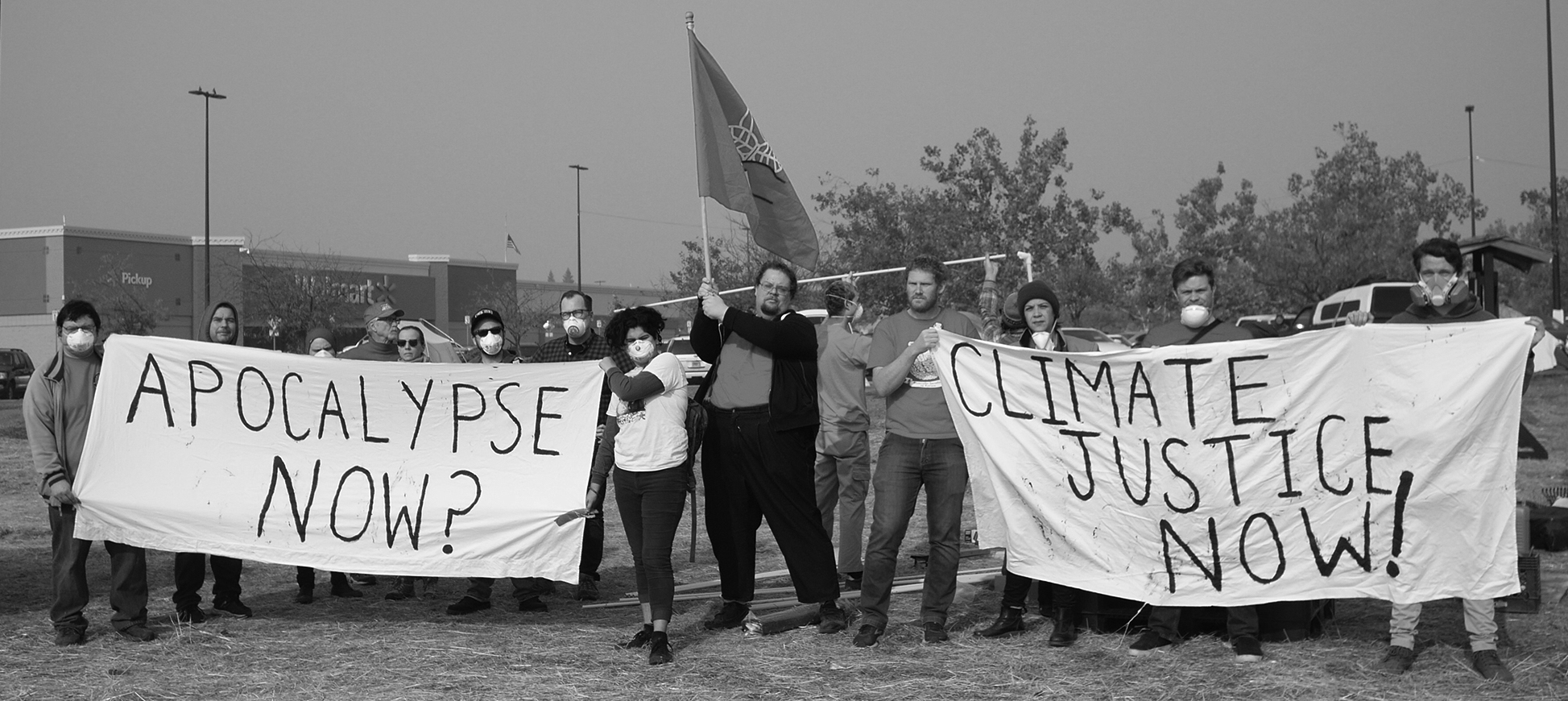The Culprit Is Capitalism
The history of environmentalism up to the present is the history of the realization that only a total transformation of the global economy will stave off climate catastrophe.
This realization is a fairly recent one. For a long time, the ecologically minded thought we could avoid environmental destruction by “greening” our consumption habits: composting, eating vegan, reusing and recycling—“being the change you want to see in the world.” Today, this individualistic ideology has been relegated to the shelves of Whole Foods.
For a long time, too, environmentalists have believed that with the proper watchfulness and regulatory zeal, we could catch and punish the rogue companies profiting off of the destruction of the planet. It turns out that it’s not the companies but the industries that are rogue. Cathartic as it might have been to lambast Volkswagen over its diesel scandal, in which it tampered with software that showed how much nitrogen oxide and dioxide its cars emitted, it is only one of many carmakers that deliberately exploit lax emissions tests.
There is nothing wrong with biking to work or fining corporations billions of dollars. But neither action is going to save us from the mass suffering that climate change threatens.
This is because environmental destruction is not caused by individual consumers or individual companies. It is caused by production in the service of profit rather than of people or the planet. When the only thing that matters to a company is that quarterly earnings go up, the environmental impacts of its production are decidedly secondary considerations, in fact, only registering when they endanger or bolster profits. This is true regardless of the degree of malevolence of the people in charge. Morally abhorrent as individual capitalists can be in their disregard for the foundations of human life, it is not their particular actions but rather the massive indifference of capitalists as a whole to anything but their bottom line that is at issue.
Two important conclusions follow from this: First, capitalists—again, not on account of their personal character defects but by virtue of their class position alone—are the obstacle to addressing climate change. Not the climate deniers, or the liberal hypocrites, or the gas-guzzling suburbanites. It’s the capitalist class that’s going to hold this thing up, and thus anyone concerned with impending planetary doom must be singularly obsessed with diminishing their power.
Second, and by extension, environmentalism and socialism are one project. They never were in fact different, but we’re at the point in the history of environmentalism when no environmentalist who is not also a socialist can be taken seriously as an environmentalist. Things have thus been simplified for us, at least theoretically. Where before people spoke of the “intersection of environmentalism and socialism,” today we can name the political-economic vision wherein ecological collapse is avoided with a more straightforward term: quite simply, socialism.

Chico DSA, North Valley Mutual Aid, and other local activists gather at the Walmart parking lot refugee camp. Photo by Francis Tatem, Sacramento DSA.
 Democratic Socialists of America
Democratic Socialists of America